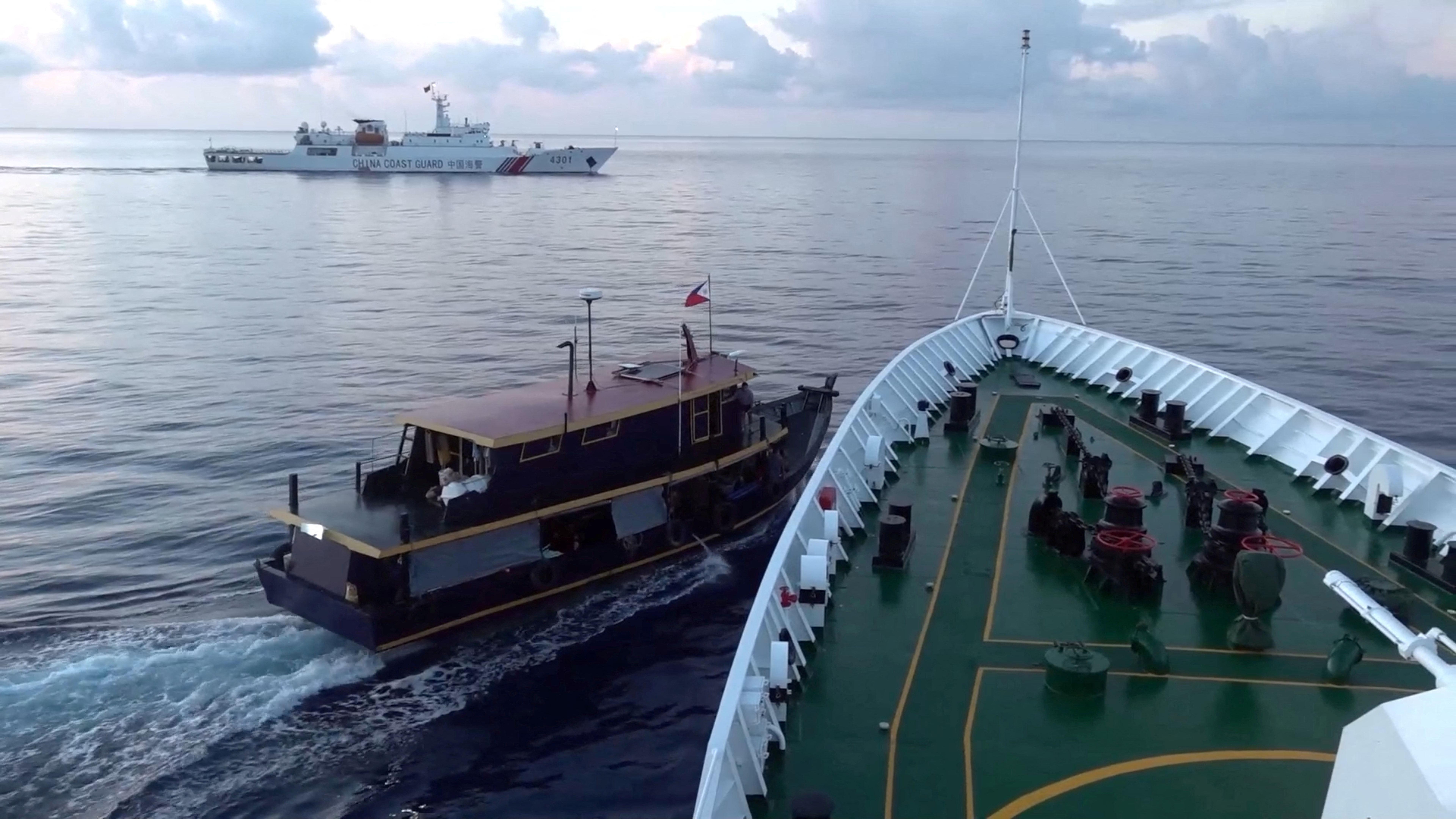Accusations Between Philippines and China Over South China Sea Collision

BEIJING/MANILA, Dec 10 (Reuters) - The Philippines and China traded accusations on Sunday over a collision of their vessels near a disputed shoalin the South China Sea as tensions over claims in the vital waterway escalate.
The Philippine coast guard accused China of firing water cannons and ramming resupply vessels and a coast guard ship, causing "serious engine damage" to one, while China's coast guard said the Philippine vessel intentionally rammed its ship.
China claims almost the entire South China Sea, a conduit for more than $3 trillion of annual ship-borne commerce, including parts claimed by the Philippines, Vietnam, Indonesia, Malaysia and Brunei. The Permanent Court of Arbitration in 2016 said China's claims had no legal basis.
Beijing and Manila have been playing cat-and-mouse around the uninhabited Second Thomas Shoal in the Philippines' exclusive economic zone when the Philippines deploys resupply missions for Filipino soldiers living aboard an aging warship deliberately run aground in 1999 to protect Manila's maritime claims.
The shoal is part of what are known internationally as the Spratly Islands.
On Saturday, the Philippines accused China of "illegal and aggressive actions" by China for firing water cannon at a civilian-operated government fishing vessel, a move Beijing called legitimate "control measures."
In Sunday's incident, China's coast guard said in a statement that two Philippine vessels, ignoring repeated warnings, had "illegally entered the waters adjacent to Ren'ai Reef in the Nansha Islands without the approval of the Chinese government."
It said the Unaizah Mae 1 "made an unprofessional and dangerous sudden turn, intentionally ramming into China Coast Guard vessel 21556." It said the Philippine side bore full responsibility.
China Coast Guard spokesman Gan Yu called on the Philippines to stop its "provocative acts," saying China would continue to carry out "law-enforcement activities" in its waters.
Philippine coast guard spokesperson Jay Tarriela posted on the social media platform X that the "M/L Kalayaan suffered serious engine damage. Contrary to China Coast Guard disinformation, UM1 rammed by CCG vessel."
A Philippine government task force condemned "China's latest unprovoked acts of coercion and dangerous maneuvers against a legitimate and routine" resupply mission. China's action "puts into question and significant doubt the sincerity of its calls for peaceful dialog," it said in a statement.
The National Task Force-West Philippine Sea said a coast guard ship was towing the Kalayaan back to Palawan province and that coast guard vessel BRP Cabra had "suffered damage to its mast after being directly targeted by the full strength of the water cannon."
U.S. Ambassador to Manila MaryKay Carlson posted on X that China's "aggression undermines regional stability in defiance of a free and open Indo-Pacific."
Around 200 Philippine fishermen, youth leaders and civil society groups have joined a Christmas mission to the area, organized by the Atin Ito ("This is ours"), a civilian-led network asserting the country's rights in the South China Sea.
The group said on Sunday they have decided to cut short the journey and returned to El Nido town in Palawan province after the captain said it was "unsafe" to continue "due to the dangerous maneuvers conducted by several Chinese vessels." Earlier in the day, ten fishing boats have decided to pull out from the voyage due to safety concerns.
(Reporting by Mikhail Flores, Colleen Howe and Eve Wu; Editing by William Mallard and Miral Fahmy)

